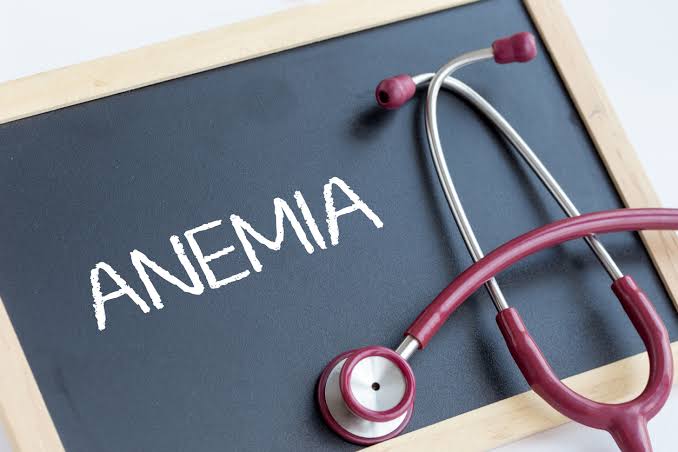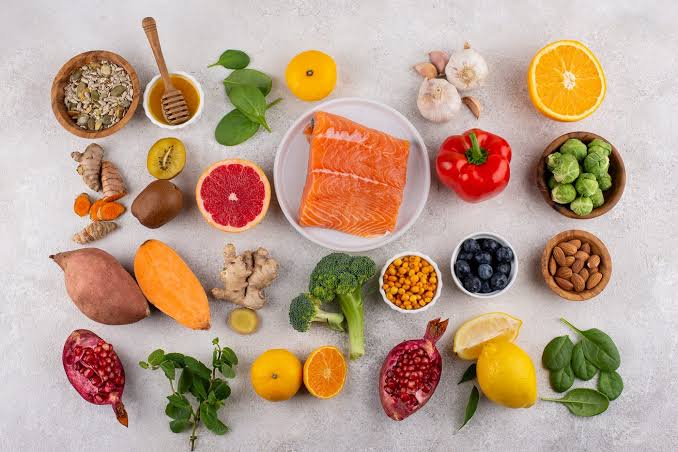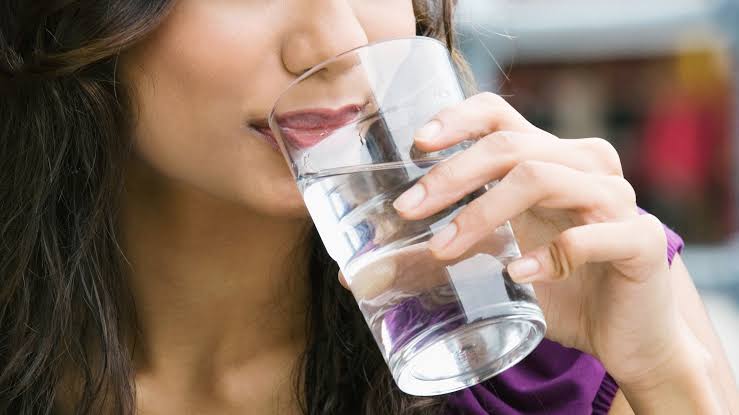Anemia Dietary Recommendations - Right Food To Help Fuel Recovery
In terms of health and wellness, anemia is one of the most difficult diseases to deal with. Anemia is a lack of red blood cells, also known as hemoglobin. But in the middle of the trouble, there is a light of hope: anemia dietary recommendations.
Author:Karan EmeryReviewer:Katharine TateFeb 21, 20243.9K Shares79.6K Views

In terms of health and wellness, anemia is one of the most difficult diseases to deal with. Anemia is a lack of red blood cells, also known as hemoglobin. It can cause a lot of different symptoms, such as tiredness, weakness, and shortness of breath, which can have a huge effect on a person's quality of life.
But in the middle of the trouble, there is a light of hope: anemia dietary recommendations. People who are dealing with anemia can take an active role in their healing by making smart food choices that replenish vital nutrients and encourage the production of healthy red blood cells.
Iron-Rich Foods
Iron-rich foods are essential for maintaining optimal health and preventing iron deficiency anemia, a condition characterized by low levels of iron in the body. Iron is a vital mineral that plays a crucial role in various bodily functions, including oxygen transport, energy production, and immune system function. Incorporating iron-rich foods into your diet can help ensure an adequate intake of this essential nutrient. Here are some common iron-rich foods:
- Lean red meats -Beef, pork, and lamb are excellent sources of heme iron, which is the type of iron found in animal-based foods. Heme iron is more easily absorbed by the body compared to non-heme iron found in plant-based foods.
- Poultry- Chicken and turkey are also rich sources of heme iron. Consuming lean cuts of poultry can provide a significant amount of iron along with high-quality protein.
- Fish -Certain types of fish, such as salmon, tuna, sardines, and trout, are good sources of heme iron. Additionally, fish provide omega-3 fatty acids, which have numerous health benefits.
- Shellfish -Shellfish like shrimp, clams, mussels, and oysters are among the richest sources of iron. They also contain other essential nutrients like zinc, selenium, and vitamin B12.
- Beans and legumes -Plant-based sources of iron include beans, lentils, chickpeas, and tofu. While these foods contain non-heme iron, they are still valuable sources of iron and are often consumed by vegetarians and vegans to meet their dietary iron needs.
- Dark green leafy vegetables -Spinach, kale, Swiss chard, collard greens, and broccoli are packed with iron, along with other vitamins, minerals, and antioxidants. These vegetables also provide fiber, which is beneficial for digestive health.
- Iron-fortified foods -Many processed foods, such as cereals, bread, and pasta, are fortified with iron to help prevent iron deficiency. Checking food labels can help you identify products that have been fortified with iron.
- Nuts and seeds -Certain nuts and seeds, such as pumpkin seeds, sesame seeds, and cashews, contain decent amounts of iron. They make for healthy snacks and can be incorporated into various dishes.
Vitamin C-Rich Foods
Vitamin C, also known as ascorbic acid, is a water-soluble vitamin that plays a crucial role in various bodily functions, including immune function, collagen synthesis, wound healing, and iron absorption. Consuming foods rich in vitamin C is essential for maintaining overall health and well-being. Here are some common vitamin C-rich foods:
- Citrus fruits -Citrus fruits such as oranges, lemons, grapefruits, and tangerines are well-known for their high vitamin C content. They are not only delicious but also versatile, making them easy to incorporate into your diet.
- Berries -Berries like strawberries, raspberries, blueberries, and blackberries are excellent sources of vitamin C. These colorful fruits are not only rich in antioxidants but also provide fiber and other essential nutrients.
- Kiwi -Kiwifruit is packed with vitamin C, along with fiber, potassium, and other vitamins and minerals. Eating kiwi can help boost your immune system and promote overall health.
- Bell peppers -Bell peppers, especially the red and yellow varieties, are incredibly rich in vitamin C. They can be enjoyed raw in salads, sliced and dipped in hummus, or cooked in stir-fries and other dishes.
- Broccoli -Broccoli is a nutrient-dense vegetable that contains a significant amount of vitamin C. It is also rich in fiber, vitamin K, folate, and other antioxidants, making it an excellent addition to any diet.
- Tomatoes:Tomatoes are not only a good source of vitamin C but also provide lycopene, another powerful antioxidant. Enjoy tomatoes raw in salads, sandwiches, or salsa, or cooked in soups, sauces, and stews.
- Papaya- Papaya is a tropical fruit that is rich in vitamin C, vitamin A, potassium, and digestive enzymes like papain. Adding papaya to your diet can help support immune function and digestion.
- Guava- Guava is another tropical fruit that is loaded with vitamin C. It also provides fiber, potassium, and other essential nutrients. Enjoy guava as a snack, in fruit salads, or blended into smoothies.
- Mango- Mango is not only delicious but also a good source of vitamin C. It is also rich in vitamin A, fiber, and antioxidants. Enjoy mango sliced and eaten fresh, or blended into smoothies and desserts.
- Pineapple- Pineapple is a tropical fruit that provides a decent amount of vitamin C, along with bromelain, an enzyme with anti-inflammatory properties. Enjoy pineapple fresh, grilled, or blended into smoothies and cocktails.
Avoiding Iron Blockers
To get the most iron into your body, you must stay away from iron blocks. When eaten around meal times, things like tea, coffee, and calcium-rich foods like dairy products can stop the body from absorbing iron. The tannins in tea and coffee bind to iron and make it harder for the body to absorb. At the same time, calcium and iron fight for absorption in the intestines.
To help your body absorb iron better, it's best to eat these things without iron-rich foods or vitamins. To help your body absorb iron better, eat foods that are high in vitamin C along with iron-rich foods. Talking to a doctor or trained dietitian can help you get the most iron and absorb it properly while also addressing dietary issues that might get in the way.
Cooking Techniques
How you cook is a very important part of getting the most nutrients out of food, including iron. For example, making foods in cast-iron pans can slightly raise the amount of iron in those foods, especially foods that are acidic like tomatoes. Adding acidic items or vitamin C sources to foods that are high in iron during cooking can also help the body absorb the iron better.
But it's important not to cook something too long or too hot, because that can cause nutrients to be lost. Using ways like steaming, sautéing, or microwaving can help keep the nutrients in foods and make sure they absorb iron properly. A healthy, well-balanced diet can be reached by trying out various cooking methods and mixing of ingredients.
Consider Iron Supplements
When food changes may not be enough to treat iron deficiency anemia, taking iron supplements is very important. Health care workers usually suggest iron supplements based on a person's needs and blood test results that show low iron levels.
It is very important to follow the directions on iron pills to avoid side effects like stomach upset or constipation. Also, things like the type of iron supplement, the amount taken, and the time of when it is taken can affect how well it works and how quickly it is absorbed.
To make sure that iron deficiency anemia is properly treated and that supplements are adjusted as needed, blood tests must be done on a regular basis to check iron levels. It is possible to get personalized advice from a healthcare provider or a certified dietitian that is based on your health conditions and dietary needs.
Hydration
Staying hydrated is important for your health in many ways, and it can also have an effect on your iron levels. Being properly hydrated helps nutrients, like iron, get to all parts of the body, making it easier to absorb and use them. Cells and tissues get enough oxygen and nutrients when you're properly hydrated, which improves your energy and general health.
Even though keeping hydrated doesn't have a direct effect on iron absorption, it can help blood flow and the movement of nutrients around the body, which could make dietary iron and iron supplements work better. So, staying properly hydrated by drinking enough water and other drinks that keep you hydrated throughout the day is important for keeping good health and increasing iron levels.
Anemia Dietary Recommendations - FAQ
What Is The Dietary Guidance For Anemia?
Iron deficiency anemia is usually preventable and highly treatable. A diet of fortified or whole grains, legumes, nuts and seeds, and fruits and vegetables can provide for healthy iron balance. During times of increased iron requirements or when an iron deficiency has been diagnosed, iron supplementation may be needed.
Is Milk Good For Anemia?
Milk has some good qualities (fat, protein, calcium, vitamin D, etc.). However, milk and milk substitutes (like soy milk) are not good for children with Iron Deficiency Anemia for a number of reasons: Milk and milk substitutes are poor sources of iron.
What Are The Dietary Restrictions For Anemia?
Do not combine an iron-rich meal with too many calcium-rich foods like milk, cheese, paneer etc. Too much fiber in the diet also affects the iron absorption. Avoid refined and processed foods - Limit intake of pasta, noodles, polished rice, ready-to-eat foods, etc.
Conclusion
Dealing with the complicated issues of anemia needs a multifaceted approach, with dietary changes being one of the most important steps toward healing. By following the anemia dietary recommendations, people can use food as medicine to get back missing nutrients, increase the production of red blood cells, and ease the painful symptoms of this condition. Also, let's not forget how much careful eating can improve our health and vitality.

Karan Emery
Author

Katharine Tate
Reviewer
Latest Articles
Popular Articles

